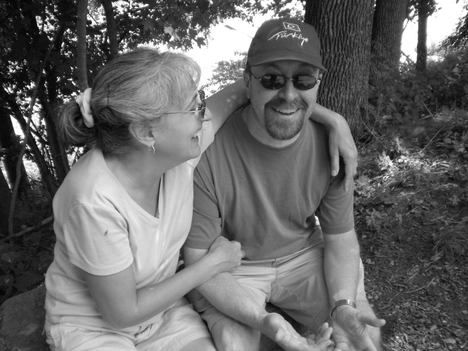|
David W. Snoke is a physics professor at the University of Pittsburgh in the Department of Physics and Astronomy. In 2006 he was elected a Fellow of the American Physical Society "for his pioneering work on the experimental and theoretical understanding of dynamical optical processes in semiconductor systems." He has long pursued work on Bose-Einstein condensation of excitons and polaritons, and in 2007, his research group was the first to report Bose-Einstein condensation of polaritons in a trap. In 2017, joint work of his group and those of Loren Pfeiffer at Princeton and Keith Nelson at MIT reported the first equilibrium Bose-Einstein condensate of polaritons. He has published five scientific books, including two textbooks, listed below.
He has also long engaged in science-faith dialogue and has published several articles on this topic, which are uploaded as papers on this website. He is the president of the Christian Scientific Society. In 2005 he published the book A Biblical Case for an Old Earth (Baker Books). He is an ordained elder (currently inactive) at City Reformed Presbyterian Church, in the Presbyterian Church in America. Scientific books: Bose-Einstein Condensation (Cambridge University Press) Bose-Einstein Condensation of Excitons and Biexcitons (Cambridge University Press) Solid State Physics: Essential Concepts, 2nd edition (Cambridge University Press) Electronics: A Physical Approach (Pearson) Universal Themes of Bose-Einstein Condensation (Cambridge University Press). Wikipedia bio (not under my control): en.wikipedia.org/wiki/David_Snoke |
Why Arts and Sciences?I am by trade a scientist, with specialization in solid state optics, nonequilibrium quantum theory, and coherence of many-particle systems (called "Bose-Einstein condensation"). What am I doing writing essays on history, theology, philosophy, and art and music?
I would argue that all of these are everyone's business. Not everyone can be an expert in these various topics, but they are not off limits, either. We live in a world of technology and claims in the name of science, from the future of the weather to what is natural for people to do, to the origins of people and culture. Can a theologian or philosopher or artist afford to not even be able to read a graph or a simple statement of proportionality or probability? On the other hand, I know scientists who are Christians who have no qualms about having only an elementary-school understanding of theology and philosophy. To a large degree, many people feel they have only so many brain cells to use, and adding anything outside their fields of expertise is demanding too much. But the outcome of ceding everything outside one's field to others is to be led by the nose on topics of enormous social importance. We can't be experts in everything, but we can ask sensible questions to people in other fields and expect sensible answers, not just "Listen to me; I'm the expert!" The more we ask questions, the more we start to see connections to the things we do know about, and perhaps even find areas in which we can contribute. A good rule of thumb is to "tithe your thought time." Take ten percent of your reading and thinking time and apply it to understanding fields outside the one that makes up your vocation. Ask the big questions, and look for writers in other fields who don't need to use obscure language to answer. Another crossover that bothers people is the connection of God and nature. Many people might be comfortable mixing science and philosophy, or science and art. But mixing science or any of the above with God-talk makes many people uncomfortable. Yet there is no reason to have a high wall of demarcation between science (and nature and culture in general) and the big questions of the universe. In general, I want to know what is true about the universe we live in. If it is the case that the real world is governed by a God with reason, thought, and desires, I want to know that, whether or not someone calls it "religion." And there is no reason to expect that should be unknowable. The fact that there are different schools of thought in religion does not bother me any more than the fact that there are very different ways of looking at the natural world, from astrology to alchemy to modern physics. We don't know everything, but we can also make progress in what we do know. I see no reason a priori to say that we can't come to conclusions about certain things in both religion and science. Let's not turn off that natural curiosity we have as children to ask questions about everything. Children naturally ask "why?" until someone squelches them. It has been said that if you ask "why?" seven times in a row, you will always end up talking about God. Let's not squelch that, but look at the whole world, constantly with fresh eyes. |

